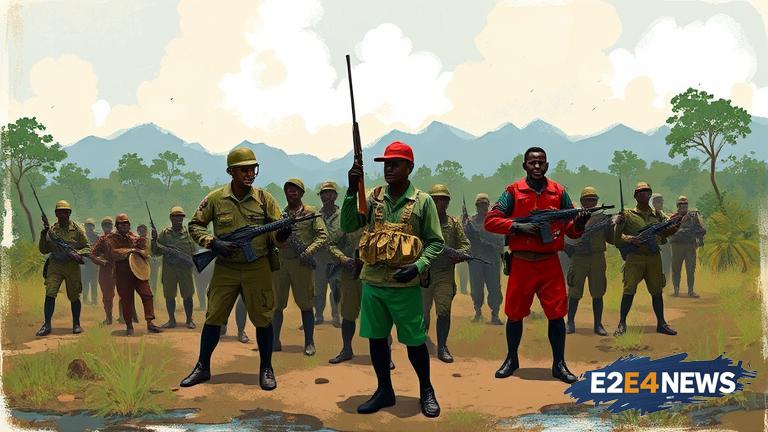The Democratic Republic of Congo has been plagued by persistent hostilities, with various armed groups and militias operating in the eastern regions of the country. Despite these challenges, peace efforts have continued to soldier on, with the support of international organizations and local initiatives. The United Nations has been actively involved in promoting peace and stability in the region, with the UN Organization Stabilization Mission in the Democratic Republic of the Congo (MONUSCO) working to protect civilians and facilitate humanitarian access. Additionally, the African Union has also been engaged in efforts to promote peace and stability in the region, through the deployment of troops and the provision of humanitarian assistance. Local communities have also been actively involved in peace-building efforts, with many organizations and initiatives working to promote inter-communal dialogue and reconciliation. However, despite these efforts, violence and instability continue to affect many parts of the country, with armed groups and militias often targeting civilians and humanitarian workers. The situation has been further complicated by the presence of external actors, including neighboring countries and international terrorist organizations, which have been accused of supporting certain armed groups. The Congolese government has also faced criticism for its handling of the situation, with some accusing it of not doing enough to address the root causes of the conflict. Nevertheless, the government has taken steps to address the situation, including the deployment of troops and the establishment of a national dialogue process. The international community has also been urged to provide more support to the peace efforts, including through the provision of financial and logistical assistance. In recent months, there have been some positive developments, including the signing of a peace agreement between the government and certain armed groups. However, the implementation of this agreement has been slow, and many challenges remain to be addressed. The humanitarian situation in the country also remains a major concern, with millions of people in need of assistance and many more displaced by the conflict. The UN has warned of a potential humanitarian catastrophe if the situation is not addressed, and has called for increased support to address the needs of affected populations. In response to these challenges, the international community has pledged to increase its support to the peace efforts, including through the provision of additional funding and resources. The European Union, for example, has announced plans to increase its support to the region, including through the deployment of additional troops and the provision of humanitarian assistance. The United States has also pledged to increase its support, including through the provision of financial and logistical assistance. Despite these challenges, there are many reasons to be optimistic about the prospects for peace in the Democratic Republic of Congo. The country has a long history of resilience and determination, and many Congolese are committed to finding a peaceful solution to the conflict. Additionally, the international community has a critical role to play in supporting the peace efforts, and there are many examples of successful peace-building initiatives around the world that can be drawn upon. However, the road to peace will be long and difficult, and will require the sustained commitment and support of all parties involved. The situation in the Democratic Republic of Congo is complex and multifaceted, and will require a comprehensive and inclusive approach to address the root causes of the conflict. This will involve not only the deployment of troops and the provision of humanitarian assistance, but also the promotion of inter-communal dialogue and reconciliation, and the addressing of underlying economic and social issues. The international community must also be prepared to provide long-term support to the peace efforts, including through the provision of financial and logistical assistance, and the deployment of troops and civilian personnel. Ultimately, the prospects for peace in the Democratic Republic of Congo will depend on the ability of all parties to work together towards a common goal, and to prioritize the needs and interests of the Congolese people. The situation is fragile and unpredictable, and will require careful management and diplomacy to avoid further escalation. However, with the right combination of international support and local initiative, it is possible to build a lasting peace in the Democratic Republic of Congo, and to create a brighter future for the Congolese people.
